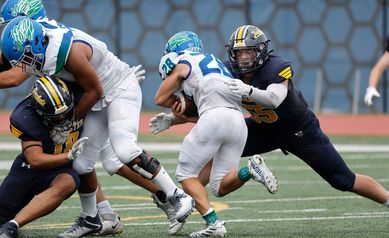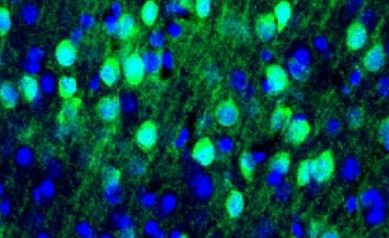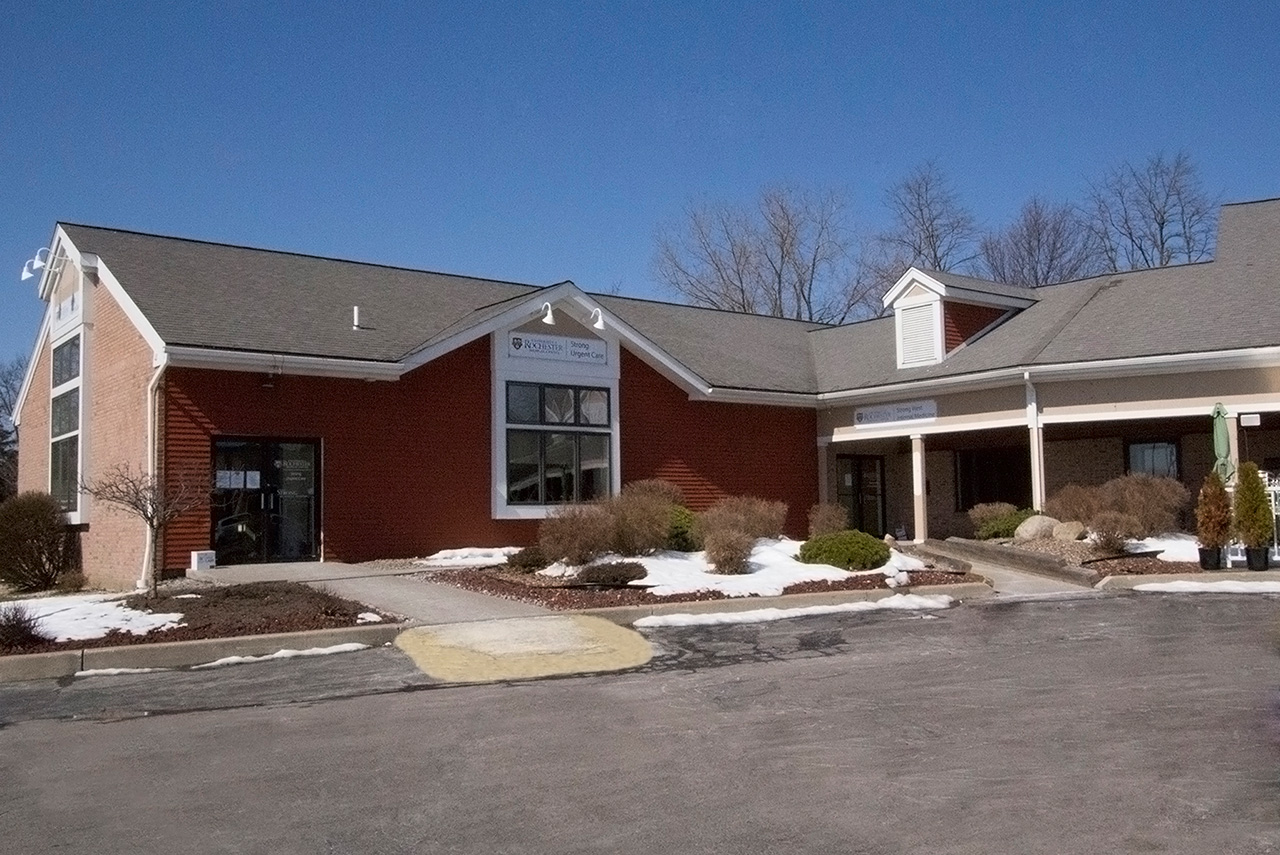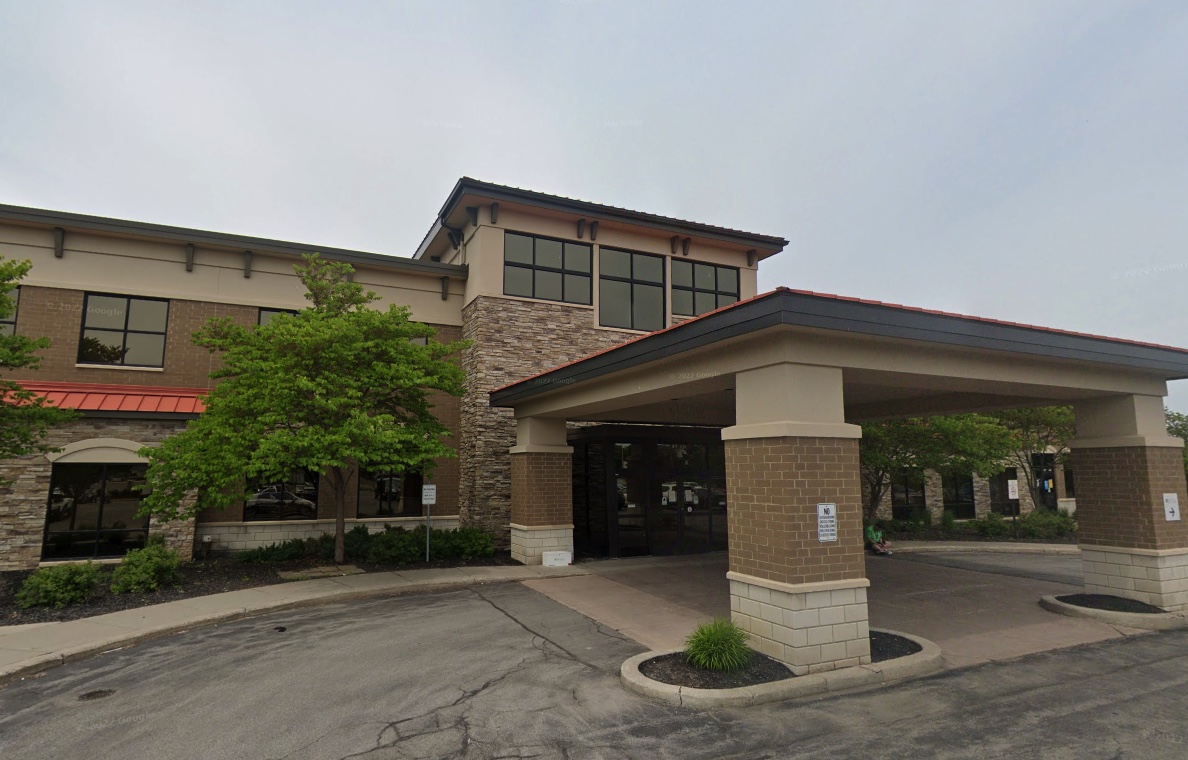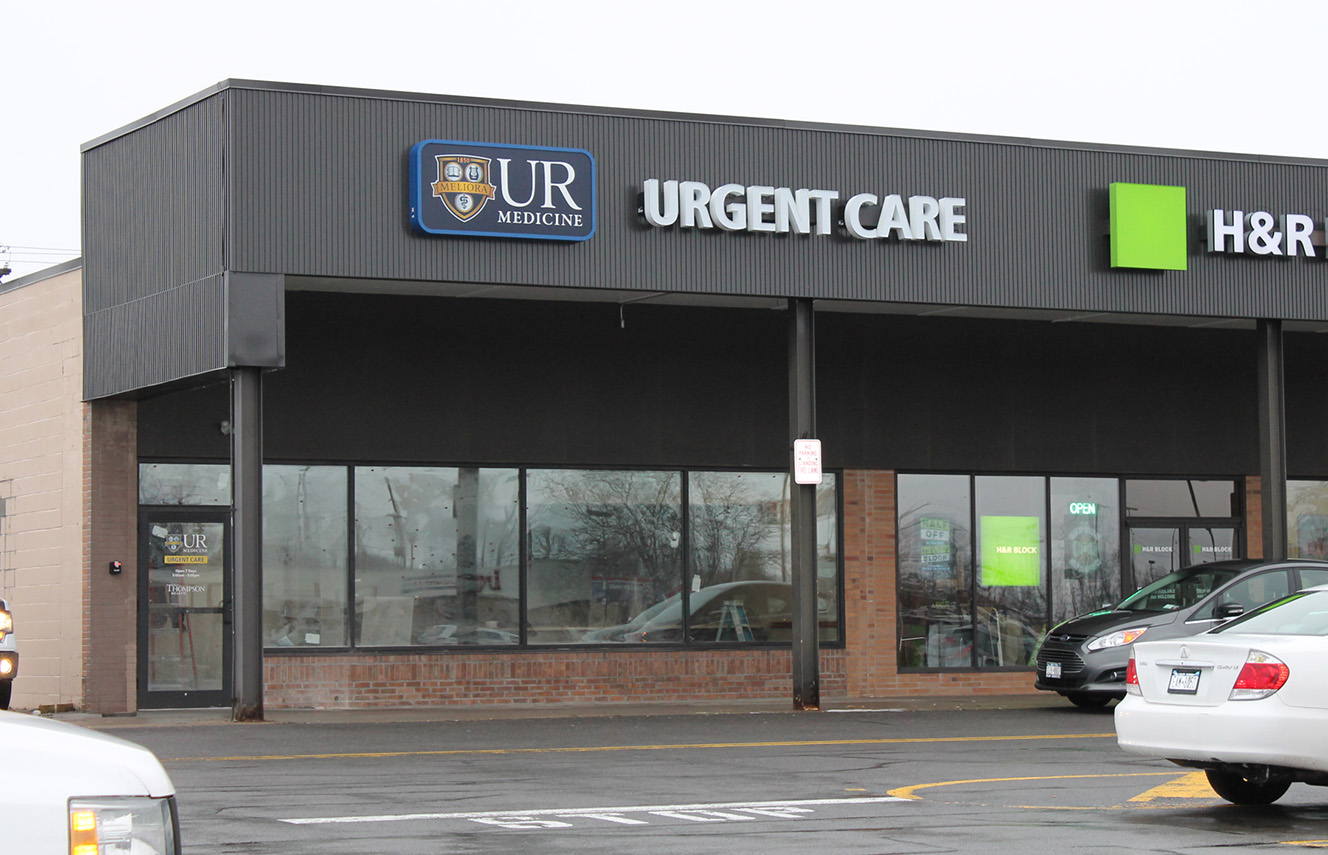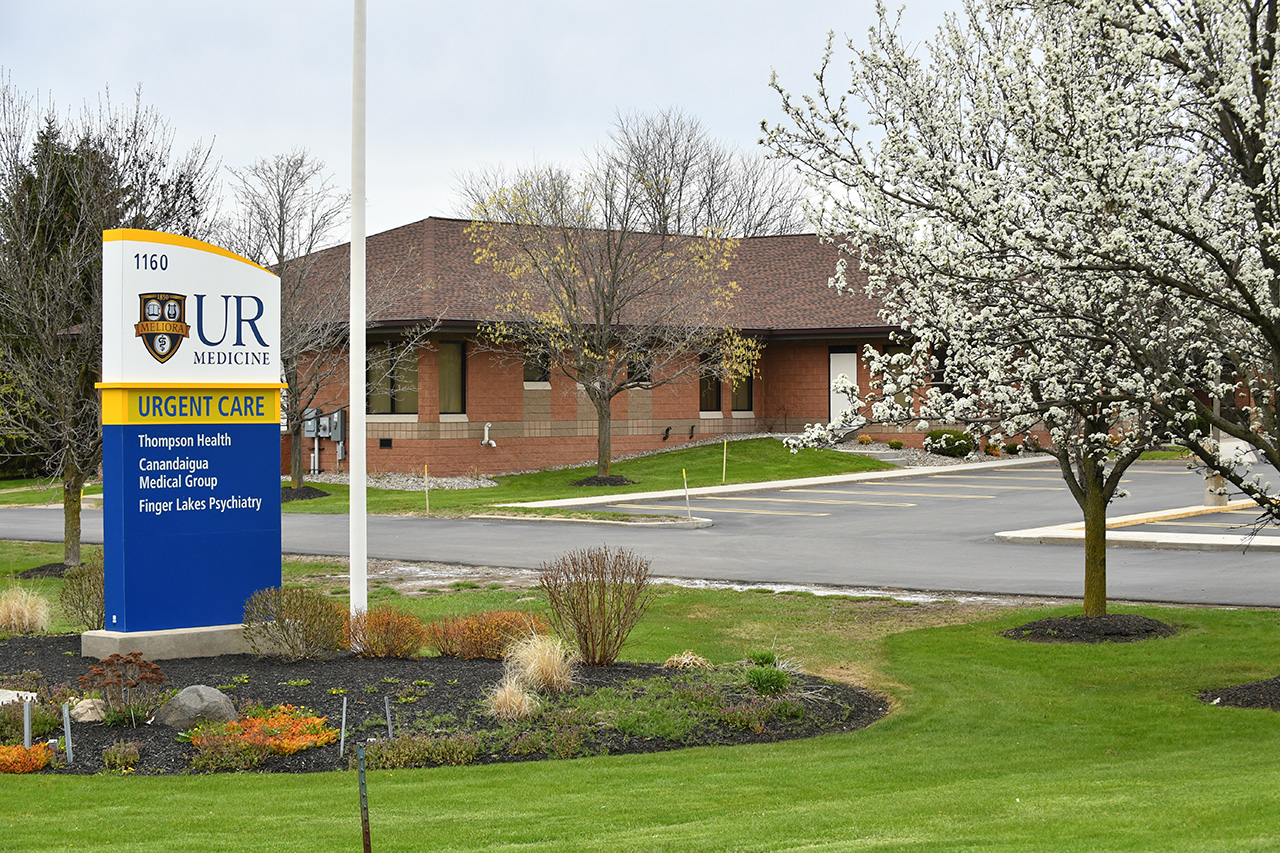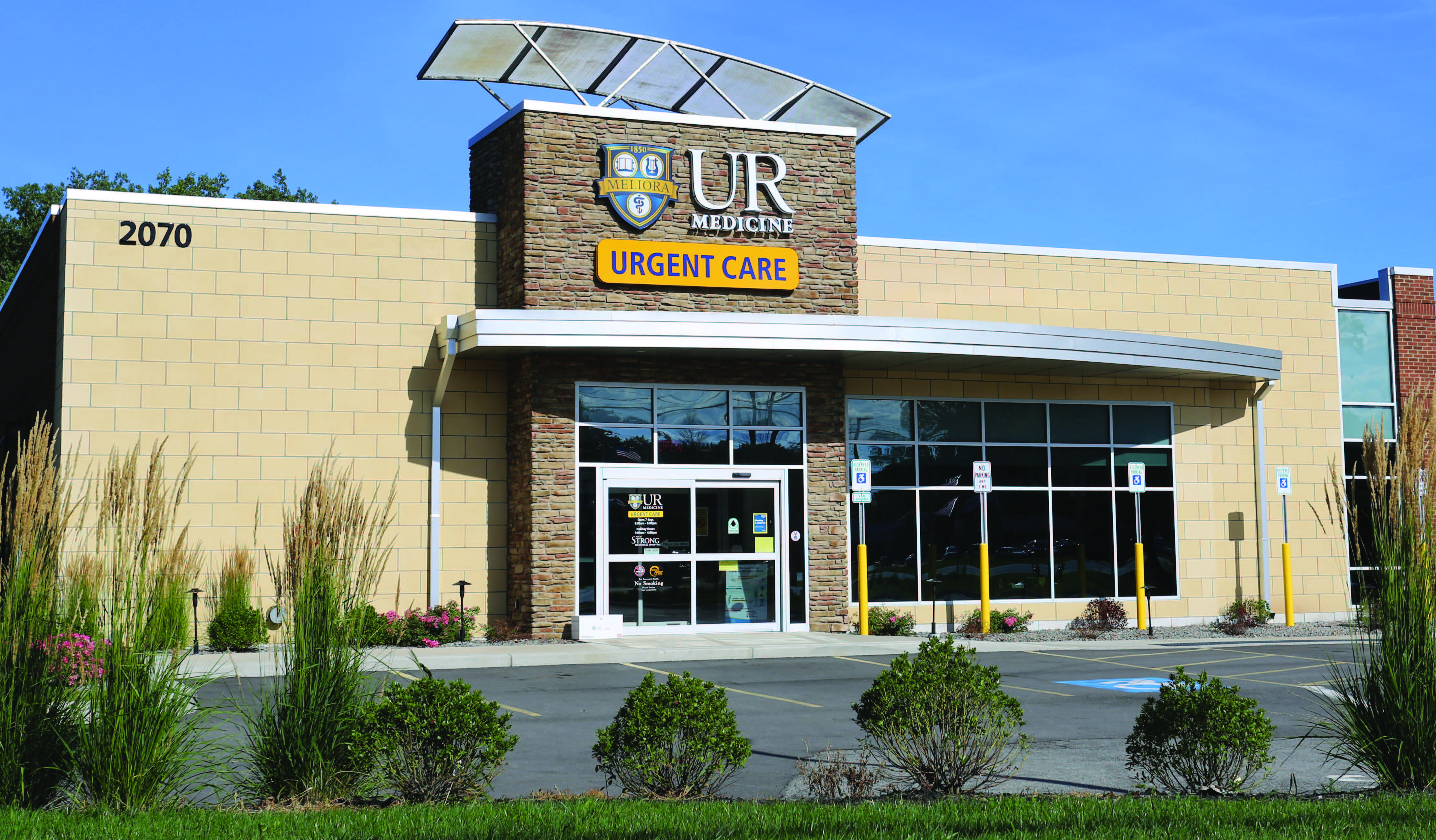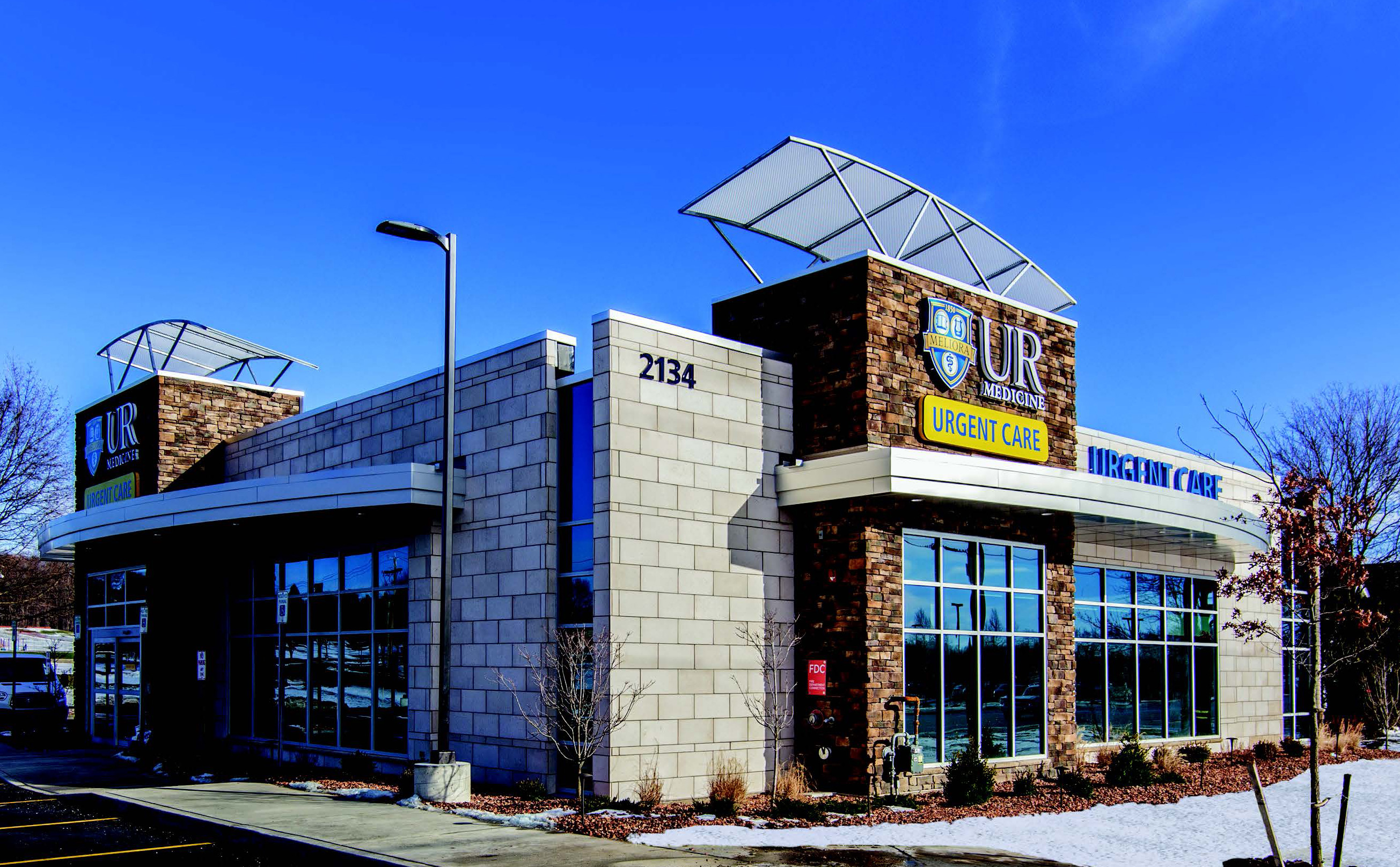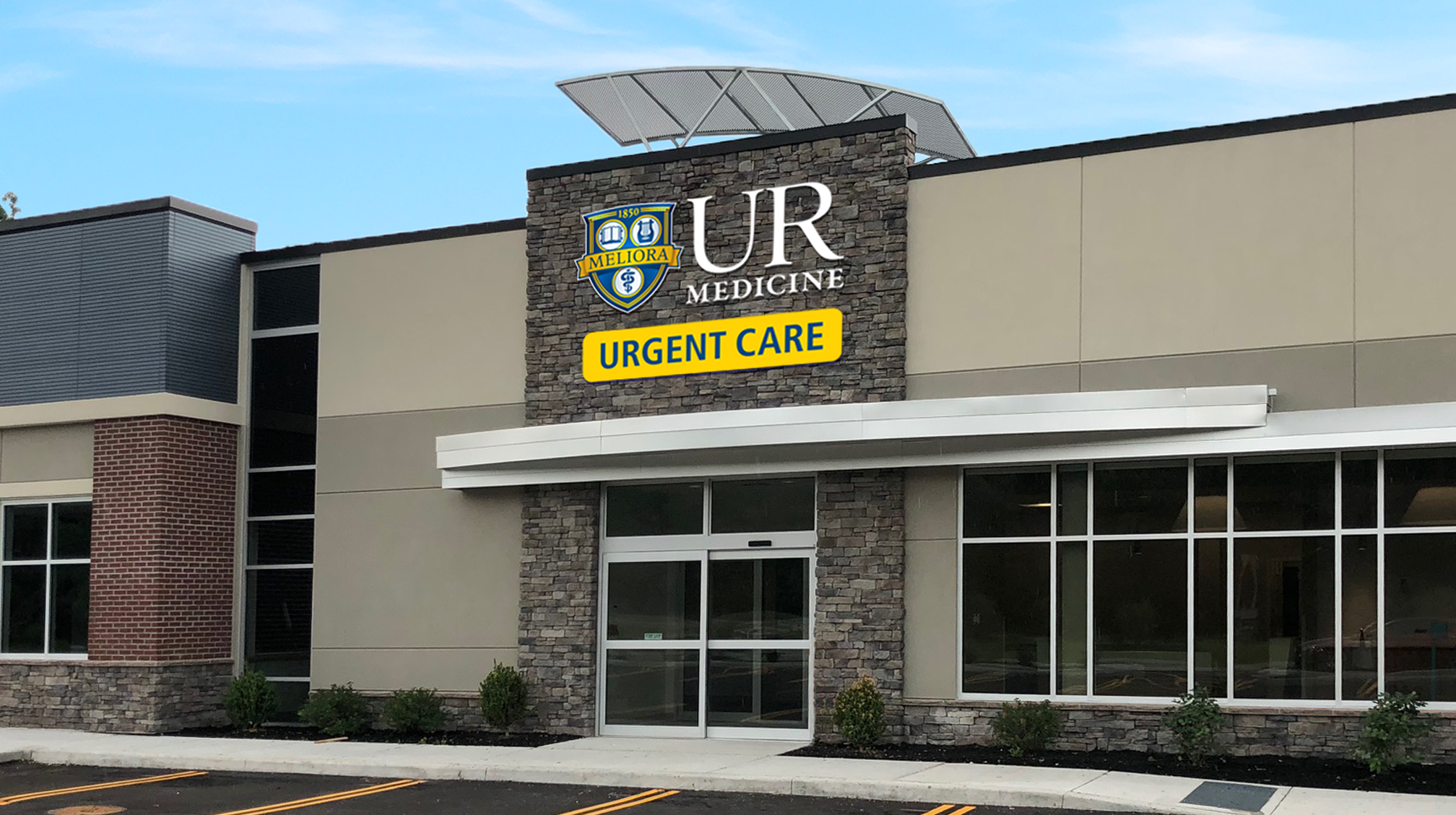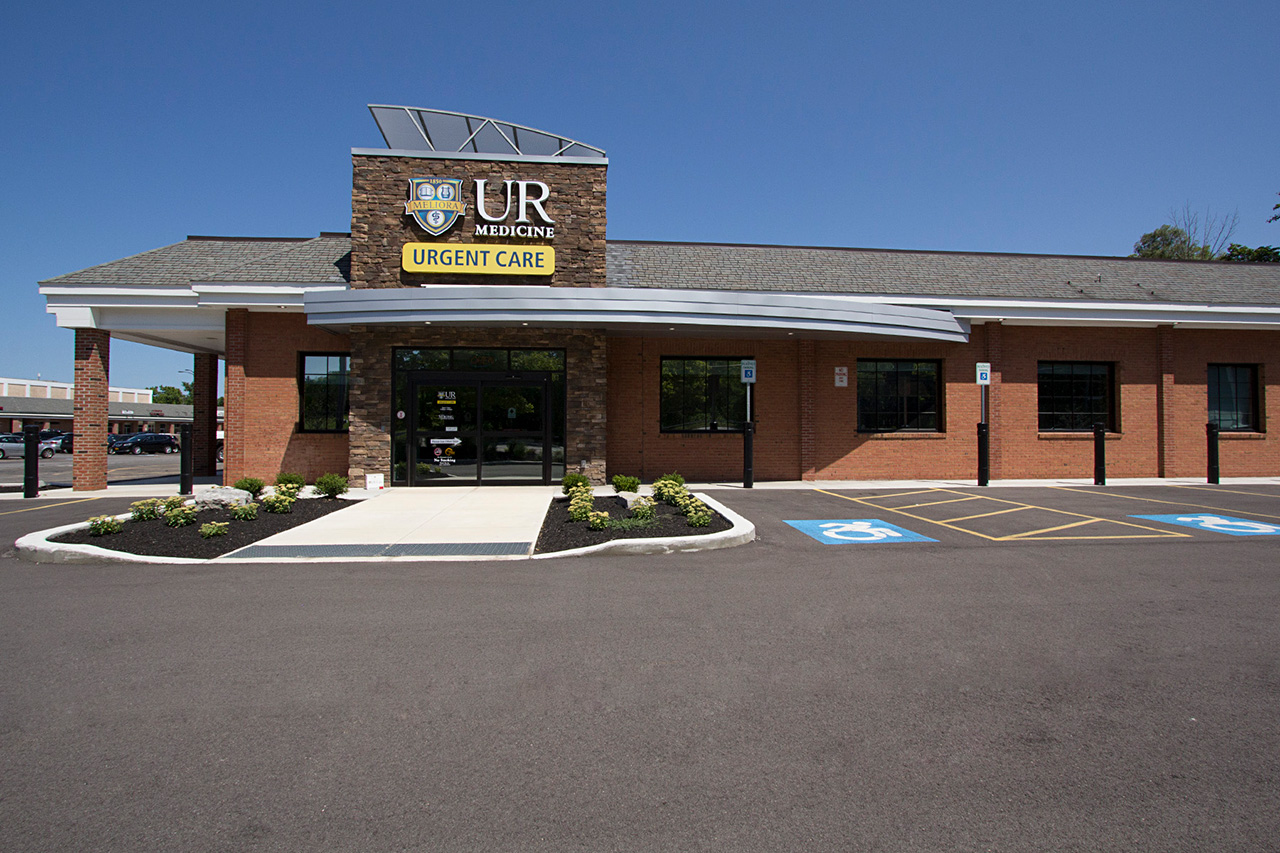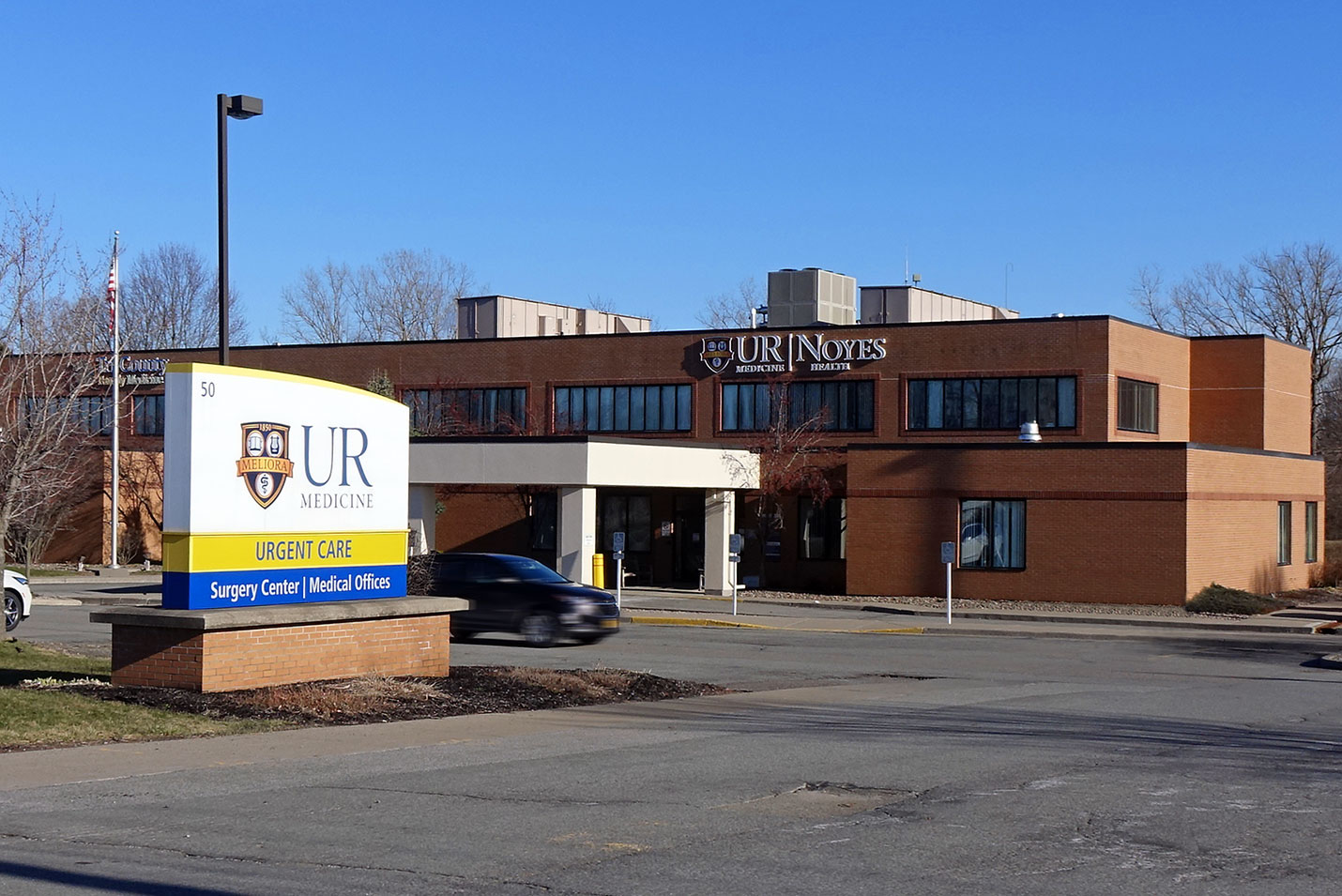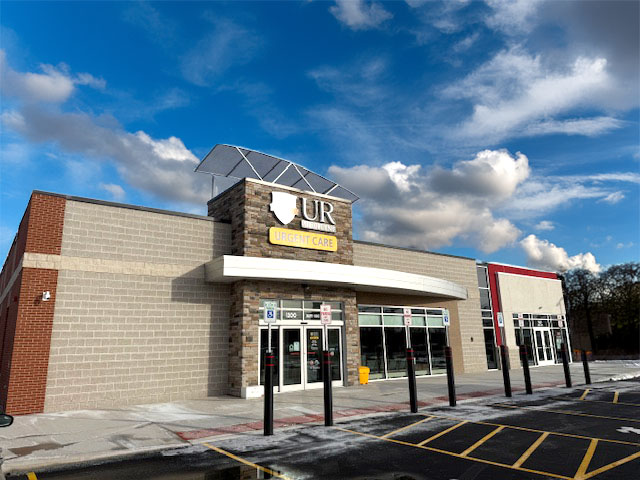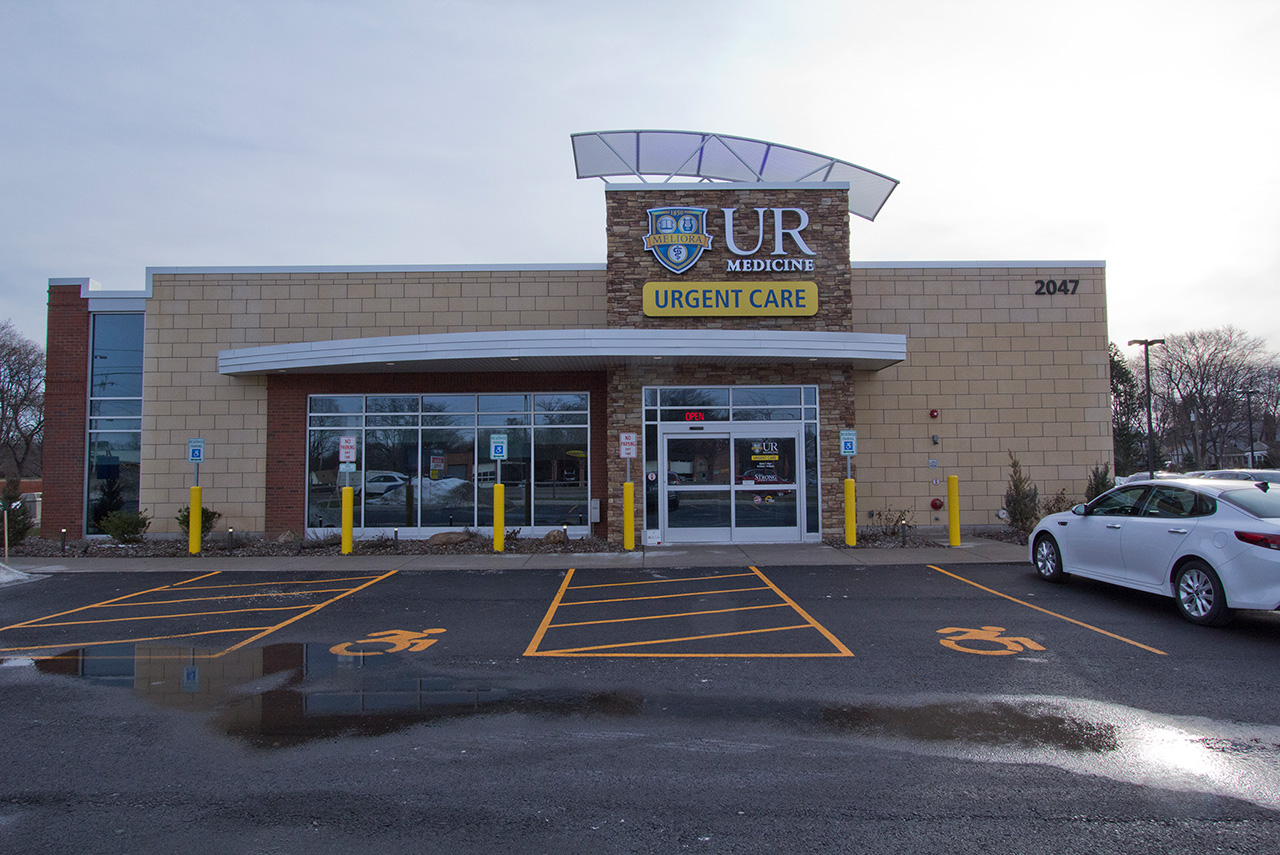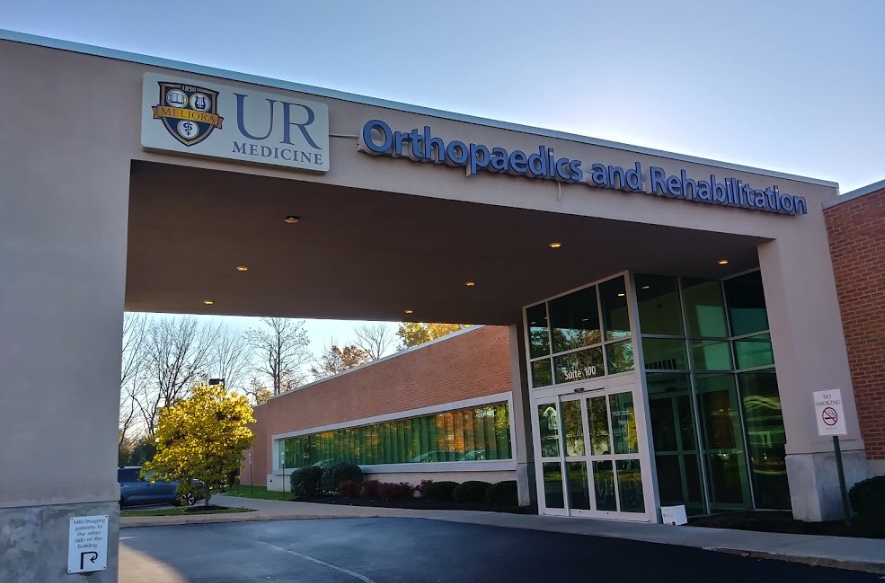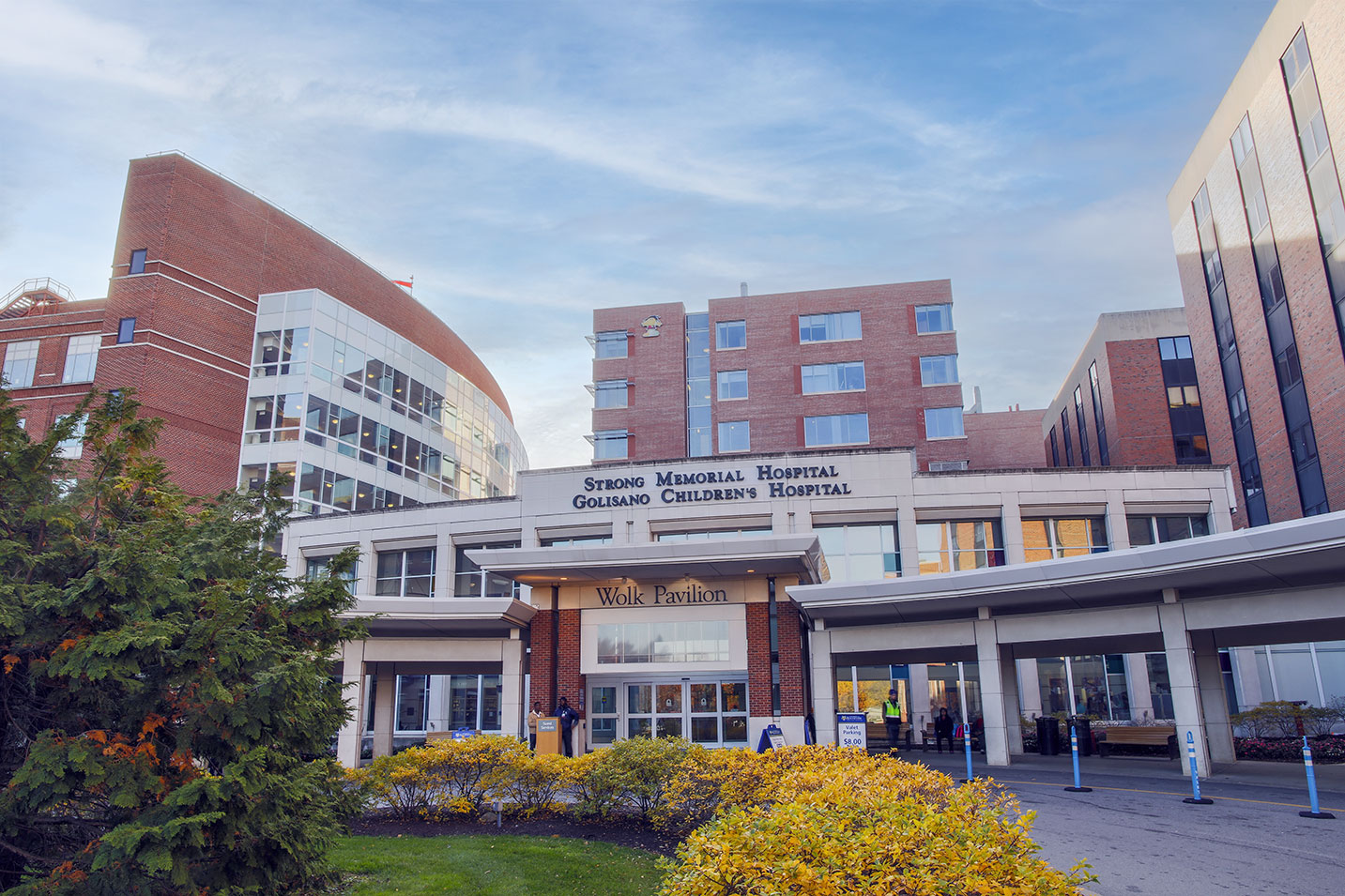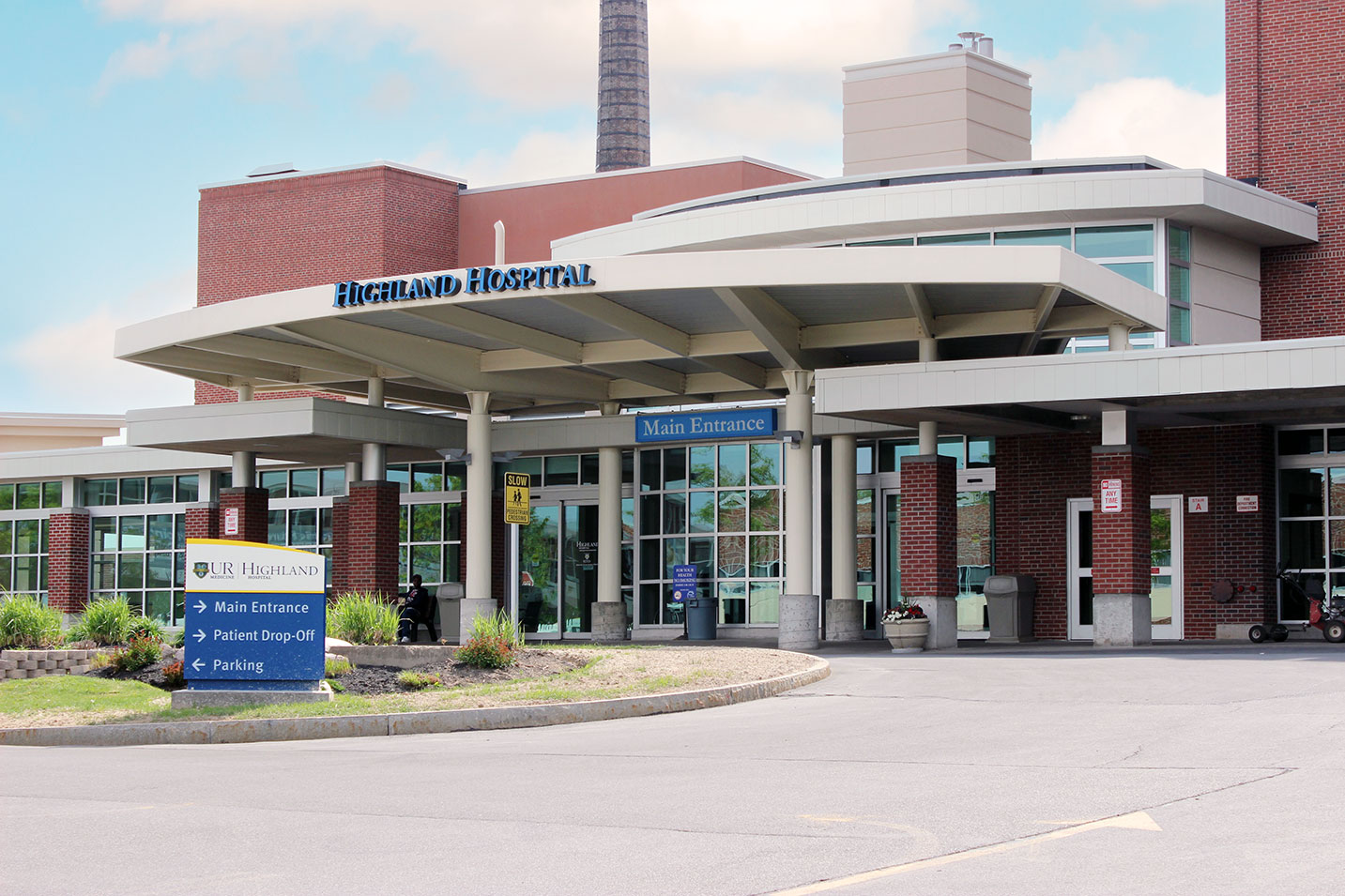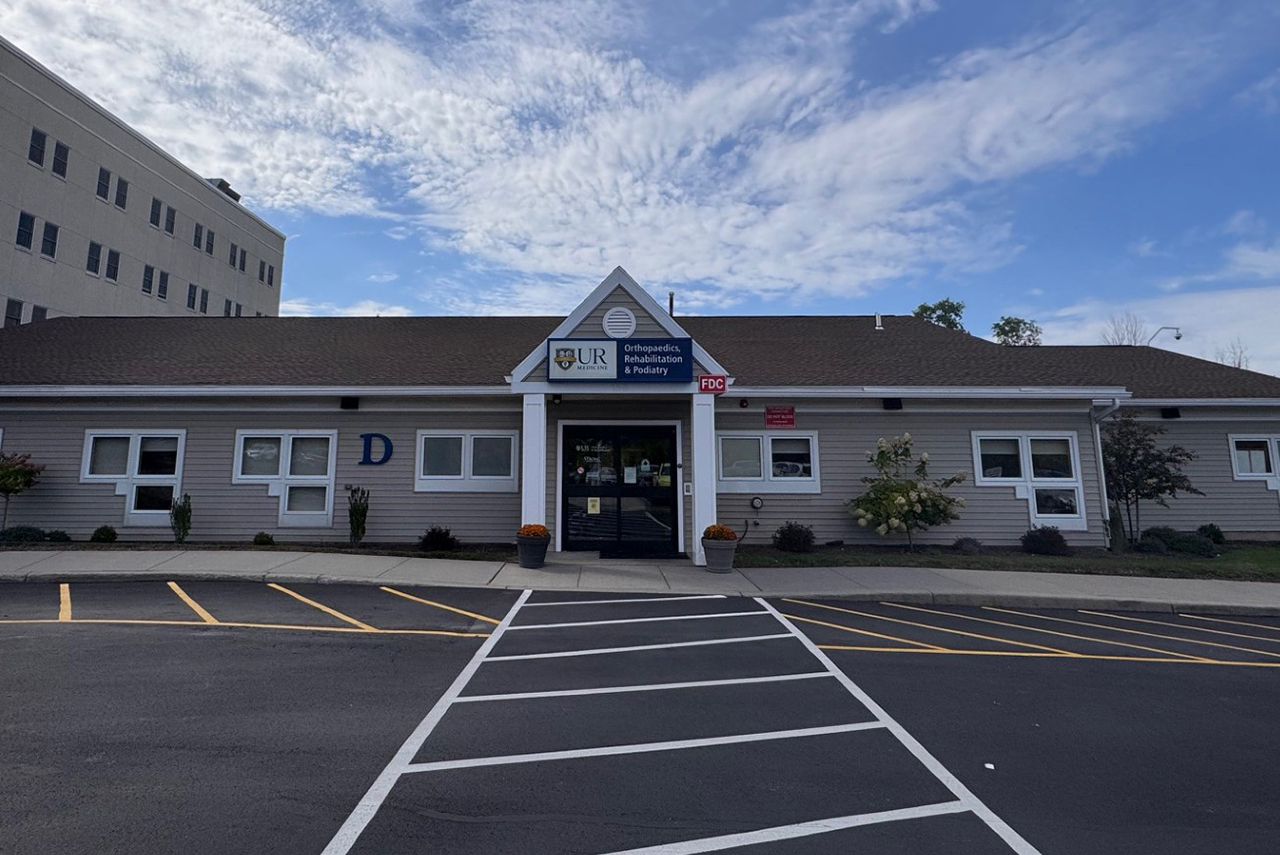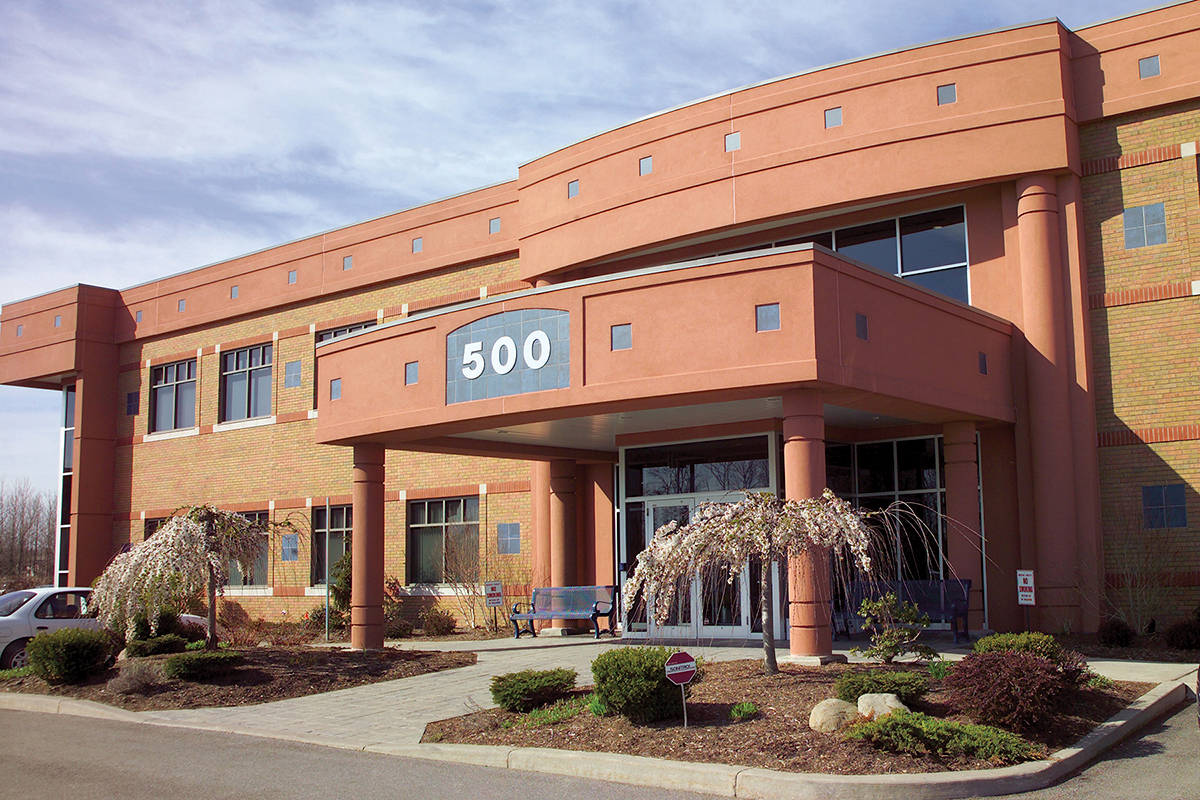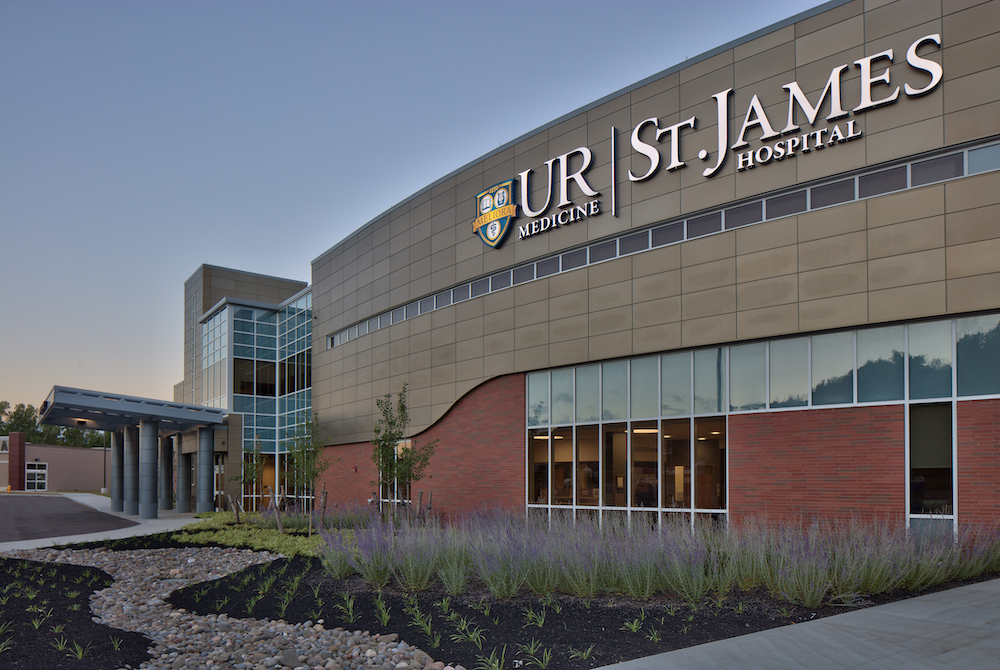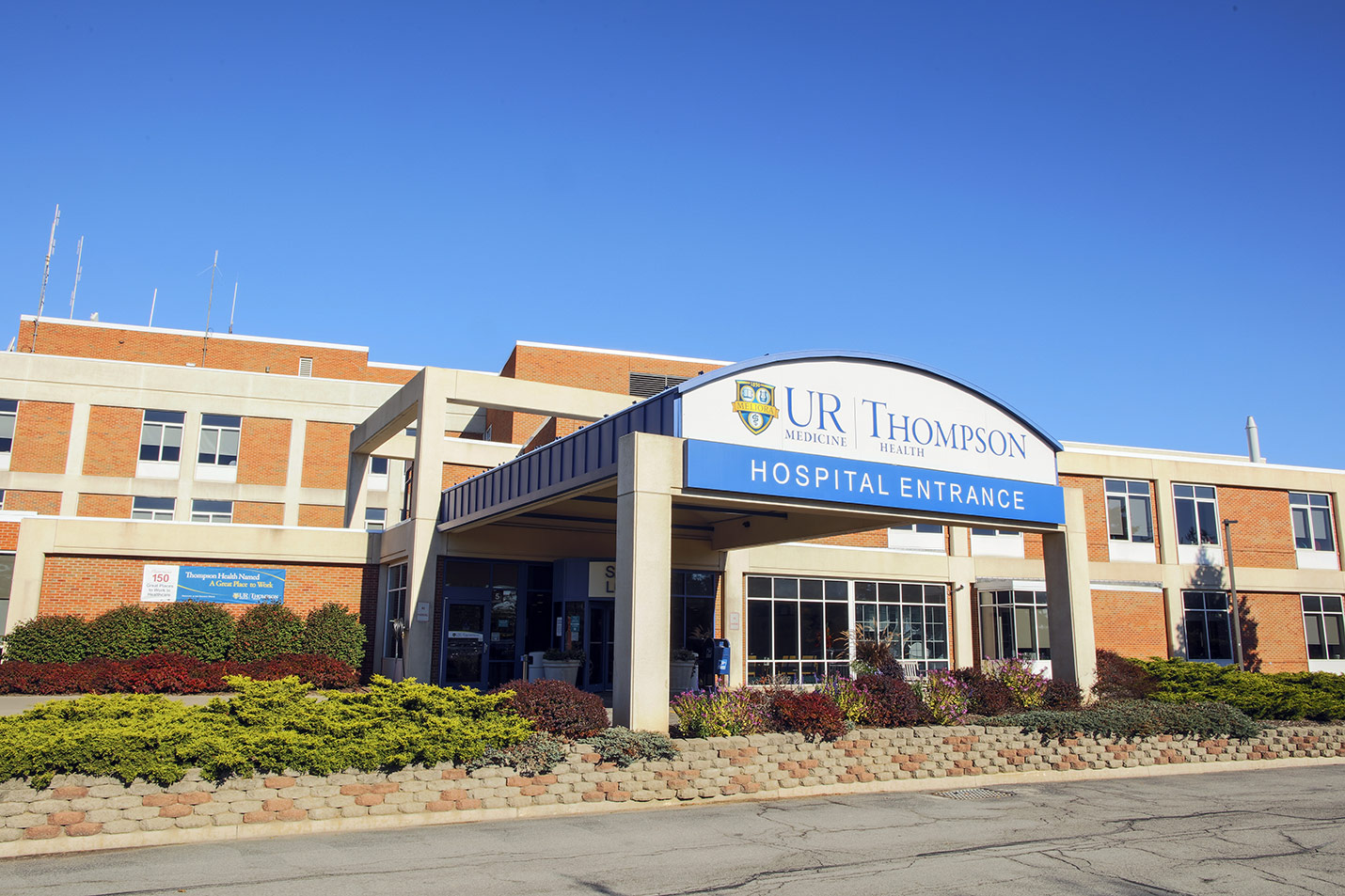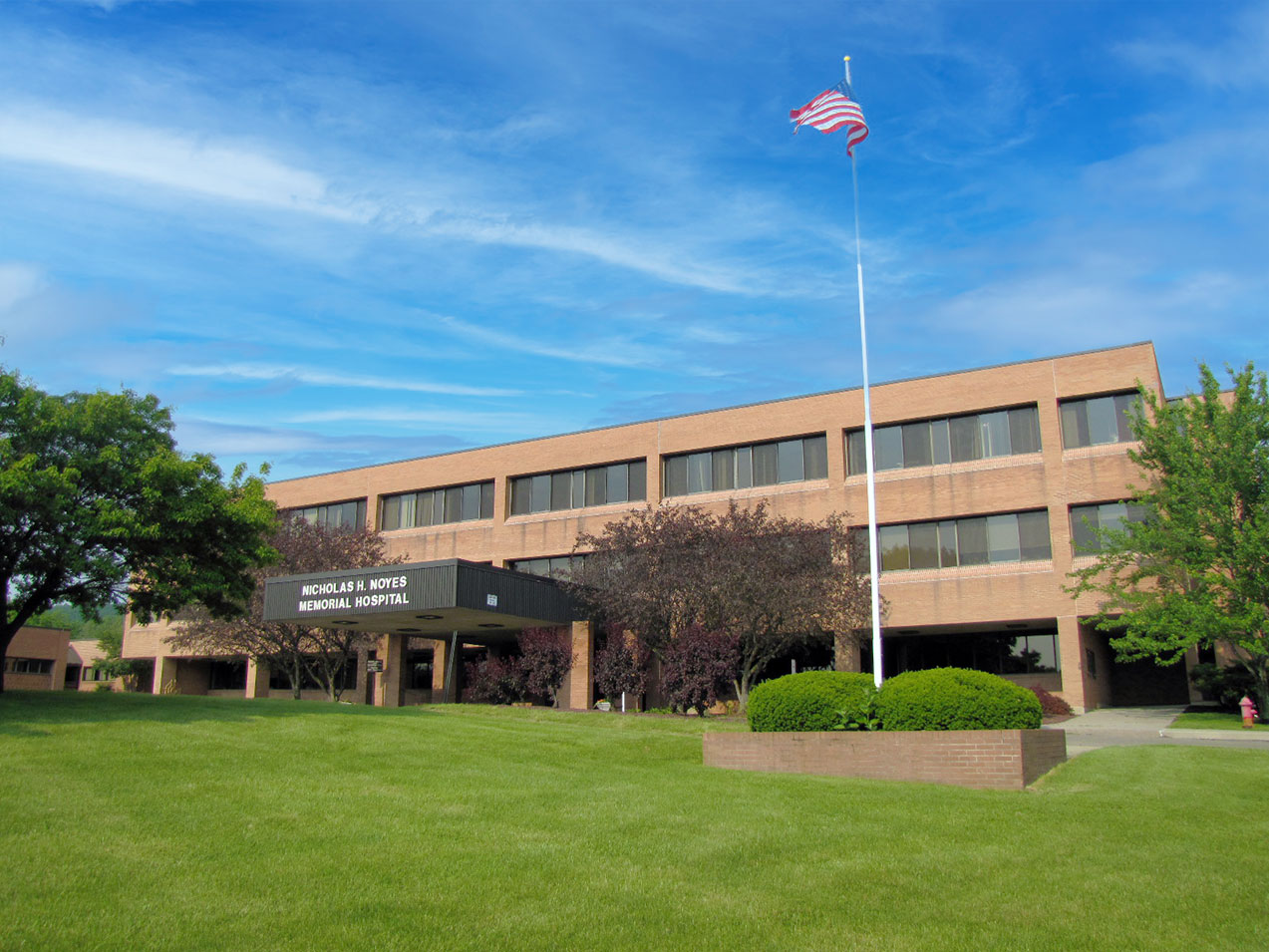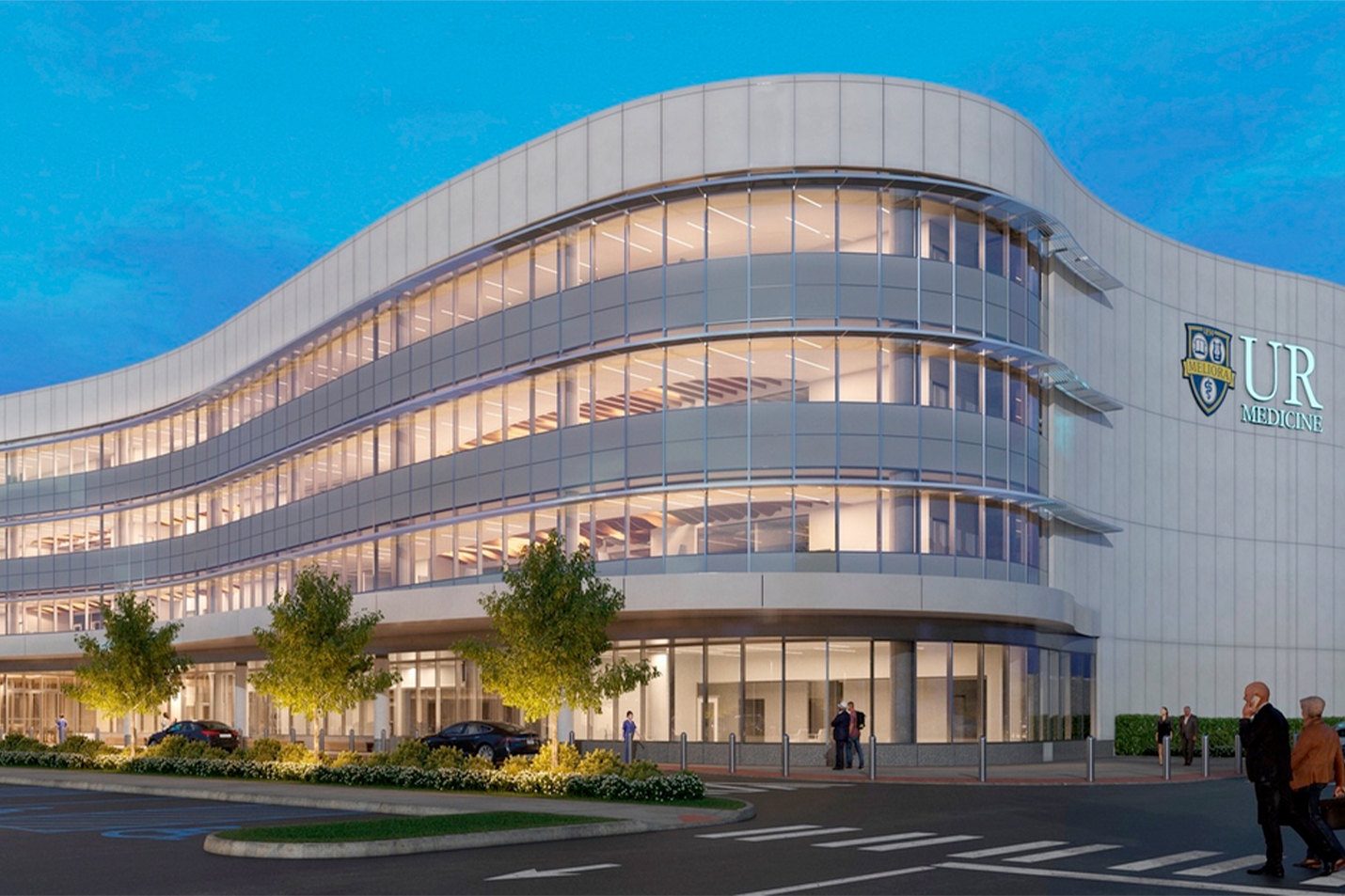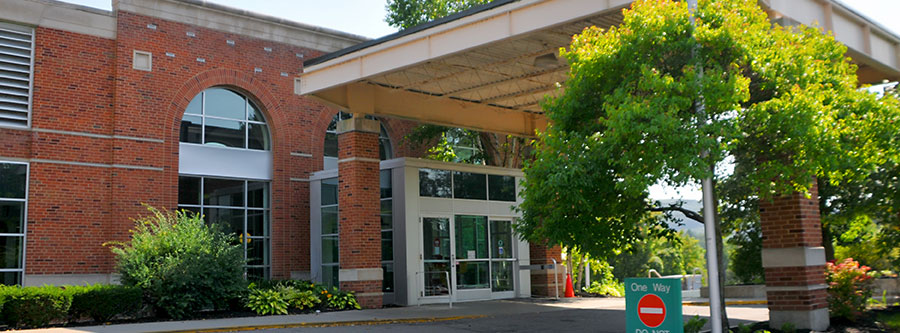Concussion (Mild TBI)
Make Appointments & Get Care
Seek Emergency Care
If it is after hours or an emergency, call 911 or go to UR Medicine Urgent Care or UR Medicine Emergency Department.
What is a Concussion (Mild TBI)?
A concussion is a type of mild traumatic brain injury (mild TBI) caused by a bump, blow, or jolt to the head or body. This sudden force makes the brain move rapidly inside the skull, leading to chemical changes and stretching of brain fibers.
While many concussions resolve quickly, some people experience longer-lasting symptoms, known as post-concussion syndrome. This is more common in individuals with a history of multiple concussions.
General Concussion
Concussions can happen to anyone, anywhere — on the road, on the job, or at home. It doesn’t matter if you’re an athlete or not – if untreated, a concussion can result in serious, prolonged symptoms. It’s important to seek treatment immediately. If you think you might have a general concussion, contact your primary care provider or call (585) 341-7500 for an evaluation.
Sports Concussion
A sports concussion is a concussion caused by an athletic incident. You can get a concussion from an accidental hit to the head, a fall, or through normal play, such as head-butting the ball in soccer or volleyball. UR Medicine's Orthopaedics & Rehabilitation providers offer care for recreational and competitive athletes of all ages. If you think you might have a sports concussion, call (585) 275-5321 for an evaluation.
Pediatric Concussion
A pediatric concussion is when a child suffers a concussion. The UR Medicine Pediatric Concussion Program offers comprehensive care for sport-related and non-sport-related pediatric concussions. If your child is younger than 19 years old, call (585) 275-2808 for an appointment.
What are the Symptoms of a Concussion?
Symptoms include:
- Headache
- Dizziness
- Difficulty maintaining balance
- Confusion
- Blurred vision
- Changes in behavior or personality
- Difficulty concentrating
- Sensitivity to light or noise
- Difficulty sleeping
Some symptoms will last only an hour or two while others may last a week or more.
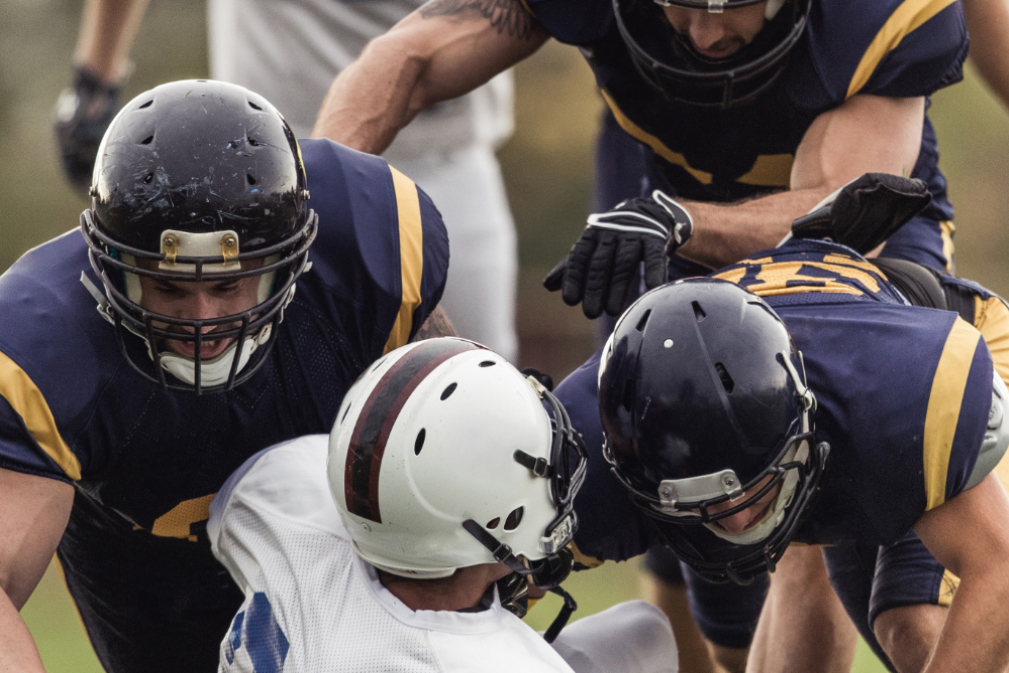
Can You Sleep with a Concussion? Signs, Symptoms & Myths
Concussions can be as confusing as they are concerning. For example, contrary to popular belief, it's generally safe to let someone with a concussion sleep. In fact, rest is a crucial part of recovery.
UR Medicine's Treatments for Concussion (Mild TBI)
The University of Rochester Medical Center developed the Integrative Cognitive Rehabilitation Program to focus on those individuals with mild traumatic brain injuries. This is a transdisciplinary program with OT, Neuropsychology and Speech Language Pathology with treatment focused on patient centered goals and compensatory strategies.
The UR Medicine Neurology and Orthopaedics & Rehabilitation teams work together to deliver the latest in medical and surgical care to prevent, evaluate, treat, and rehabilitate concussions.
After we review all symptoms and perform an examination, we'll determine if any further tests, such as an MRI scan, are needed.
Treatment may include:
- Balance exercises/activities
- Cervical spine, scapular and postural exercises/activities
- Vestibular exercises/maneuvers to treat dizziness/vertigo
- Aerobic testing to determine tolerance to increased activity
- Exercises/activities specific to a sport, work, or task
We also have physical therapists who can help you return to your normal lifestyle. Every concussion is unique, so our physical therapists will work closely with you to determine the best exercises and activities for your recovery.
Speech, Language, and Cognitive Evaluations
A Speech-Language Pathologist (SLP) will assess how a concussion has affected:
- Attention and focus
- Memory and recall
- Problem-solving and decision-making (executive functioning)
- Language and communication skills
- Visuospatial processing
Using this assessment, your SLP will develop individualized strategies to help restore cognitive function and improve daily life.
What Sets Us Apart?
The Integrative Cognitive Rehabilitation Program (ICRP) at UR Medicine is a specialized, multidisciplinary program designed to help individuals recover from mild traumatic brain injury (mild TBI), concussion, and other cognitive impairments.
Unlike traditional rehabilitation programs that may focus on a single therapy type, the ICRP combines expertise from multiple disciplines to address cognitive, speech, and functional challenges after brain injury.
Because we’re an academic medical center, our expert clinicians also perform research, including groundbreaking work on concussions. For example, UR Medicine took part in the largest sports concussion research project ever, a joint effort between the NCAA and the U.S. Department of Defense.
For sports concussions, UR Medicine Athletic trainers work closely with local high schools and colleges to provide immediate care for injuries during practices or games. They also triage concussions and work with UR Medicine physicians to coordinate care for the athletes. Many local professional sports teams trust our physicians as their official team doctors.
For pediatric concussions, our Child Neurology division offers state-of-the-art services by nationally known physicians with the highest levels of training and the most regional experience.
Locations
View All LocationsWe serve you in the Rochester metropolitan area and surrounding region.
View All Locations34 locations
Village Woods Commons
42 Nichols Street, Suite 1
Spencerport, NY 14559
South Pointe Landing
10 South Pointe Landing, Suite 100
Rochester, NY 14626
Omnitech Park
7670 Omnitech Place
Victor, NY 14564
Canandaigua Commons
699 South Main Street, Suite 5
Canandaigua, NY 14424
Jones Memorial Hospital
191 North Main Street, 1st Floor
Wellsville, NY 14895-1150
Thompson Medical Center
1160 Corporate Drive, 1st Floor
Farmington, NY 14425
2070 Empire Boulevard, Suite 1
Webster, NY 14580
2134 Penfield Road, Suite 1
Penfield, NY 14526
1669 Pittsford-Victor Road, Suite 100
Victor, NY 14564
Pittsford Colony Plaza
3400 Monroe Avenue, Suite 16
Rochester, NY 14618
Noyes Health Services
50 East South Street, 1st Floor
Geneseo, NY 14454-1300
St. James Medical Office Building
7309 Seneca Road North, Entrance B, Suite 103
Hornell, NY 14843
1300 Jefferson Road, Suite 500
Rochester, NY 14623
2047 West Ridge Road, Suite 1
Rochester, NY 14626
Clinton Crossings, Building D
4901 Lac De Ville Boulevard, Suite 250
Rochester, NY 14618
Clinton Crossings, Building H
2400 South Clinton Avenue, Suite 150
Rochester, NY 14618
Platinum Office Complex
2064 Fairport Nine Mile Point Road, Suite 100
Penfield, NY 14526
Canandaigua Commons
699 South Main Street, Suite 3
Canandaigua, NY 14424
Ambulatory Care Center at Strong Memorial Hospital
601 Elmwood Avenue, 1st Floor
Rochester, NY 14642
Clinton Crossings, Building C
919 Westfall Road, Suite 220
Rochester, NY 14618
Highland Hospital
1000 South Avenue
Rochester, NY 14620
Strong West Annex, Building D
156 West Avenue
Brockport, NY 14420
Spring Pines Office Park
1672 Empire Boulevard, Suite 100
Webster, NY 14580
Calkins Corporate Park (Red Creek)
500 Red Creek Drive, Suite 130
Rochester, NY 14623
St. James Hospital
7309 Seneca Road North, Suite 107
Hornell, NY 14843
Specialty Medical Office
48 East South Street
Geneseo, NY 14454
Highland Hospital
1000 South Avenue
Rochester, NY 14620
FF Thompson Hospital
350 Parrish Street
Canandaigua, NY 14424
Noyes Memorial Hospital
111 Clara Barton Street
Dansville, NY 14437
Strong Memorial Hospital
601 Elmwood Avenue
Rochester, NY 14642
Marketplace
10 Miracle Mile Drive
Rochester, NY 14623
Jones Memorial Hospital
191 North Main Street
Wellsville, NY 14895
